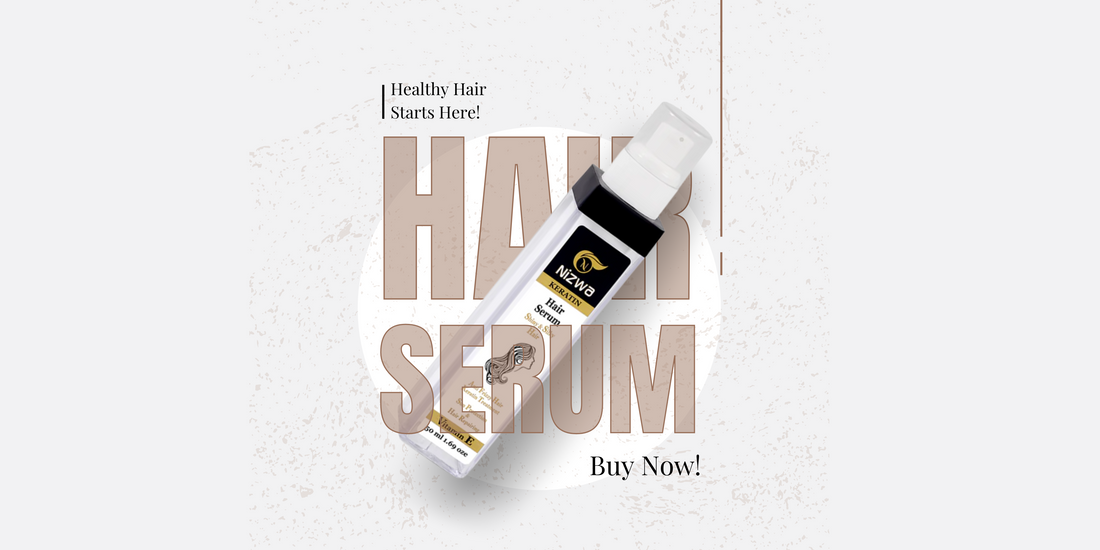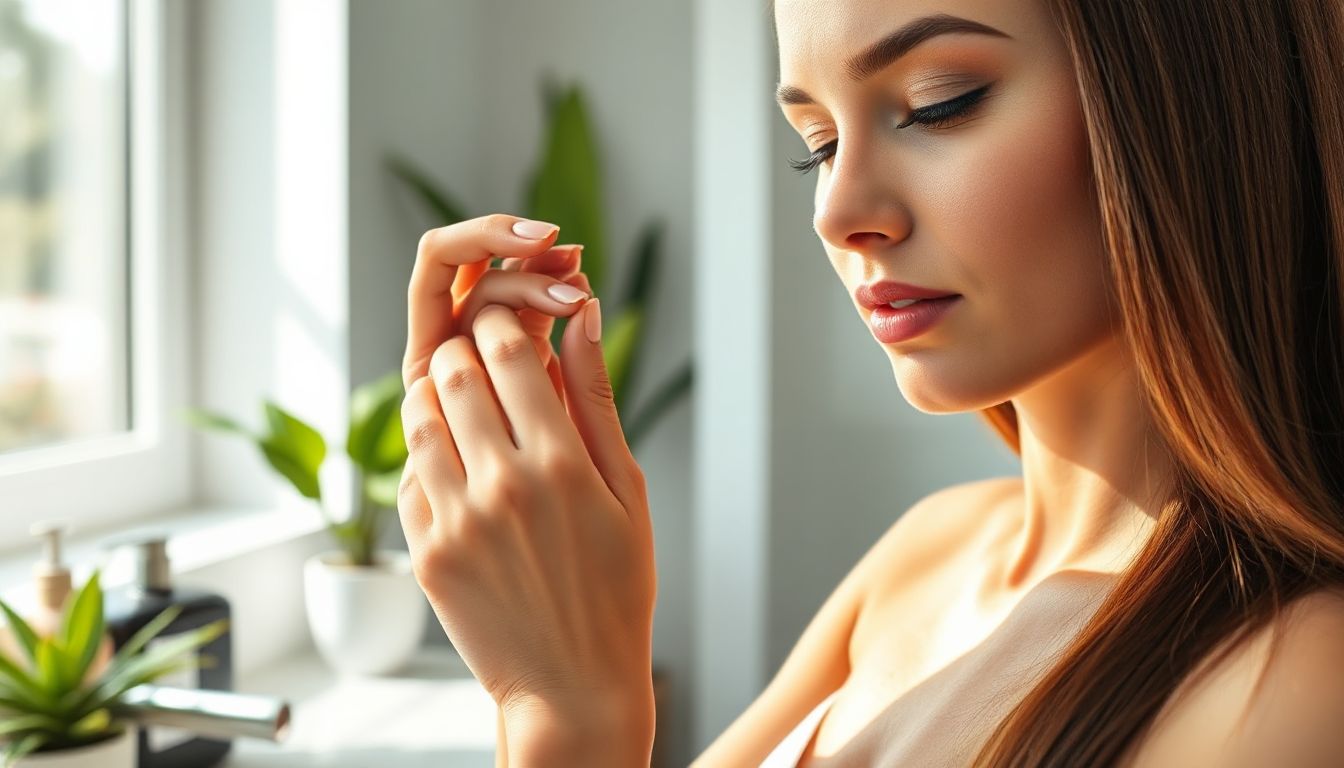
Is It Safe to Use Hair Serum Every Day? Dermatologist-Backed Advice
Hair serums are quickly becoming a favorite for many. They promise shinier, smoother hair and help tame frizz in seconds. With so many brands advertising daily use, it’s easy to wonder: is it safe to apply hair serum every day? The truth is, it depends. Knowing what to look for can help you keep your hair healthy while enjoying the benefits. Here’s what dermatologists say about daily use of hair serums and how to do it right.
The Rising Popularity of Hair Serums
The Benefits of Hair Serum for Different Hair Types
Hair serums can do a lot of good. They add shine, fight frizz, and create a smooth, polished look. For curly hair, serums can help define curls and reduce puffiness. If your hair is damaged from styling or coloring, serums create a protective layer against further harm. Many users report transformation stories—frizzy, dull hair turns radiant and manageable after consistent use.
Why More People Are Using Hair Serum Daily
The main reason? Convenience. Serums work fast to give instant results. Just a few drops can make a big difference. Plus, social media and celebrities keep promoting these products, making daily use seem like a beauty secret. People love quick fixes, especially when it look good right away.
Differentiating Between High-Quality and Low-Quality Serums
Picking the right serum matters. Look for dermatologist-recommended brands. Check the ingredients list for nourishing oils like argan or coconut, not just silicones that create shine temporarily. A high-quality serum works with your hair, not just masks problems. Avoid cheap or overly chemical options to keep your scalp and hair safe.
Understanding How Hair Serum Works
The Composition of Hair Serums
Most serums contain silicones, oils, or polymers. Silicones give quick shine and smoothness by coating hair strands. Natural oils nourish and add moisture. Polymers help with hold and styling. Each ingredient plays a role—some protect, while others style or add shine.
How Hair Serums Interact with Hair Follicles and Scalp
Serums mainly sit on the hair’s surface. They don’t deeply penetrate the scalp most of the time. But, overuse can cause buildup, clogging follicles. This buildup may lead to dull hair or scalp irritation if not cleaned regularly. Scientific studies show that some ingredients can form a film which prevents natural moisture from escaping.
Potential Benefits of Regular Use
A well-chosen serum can make hair look healthier. It reflects light better, feels soft, and is easier to style. Some serums also offer a layer of protection against environmental stress, like pollution or UV sunlight.
Is Daily Use of Hair Serum Safe? Dermatologist Insights
General Safety Perspective
Most dermatologists agree that using serum daily is safe if you pick the right product. It’s about matching your hair type and scalp health. If you have dry, damaged hair, daily application can restore moisture. But if your scalp tends to be oily, less frequent use may be better.
Potential Risks of Using Hair Serum Every Day
Too much serum can lead to buildup, causing your scalp to become clogged. This might result in dandruff or slow hair growth. Some ingredients might cause sensitivities or allergies, especially if you notice itching or irritation. Certain silicones can also be hard to wash out, leading to dullness over time.
Case Studies and Expert Opinions
Many dermatologists say moderation is key. They've seen patients with clogged scalps from daily serum use. However, when chosen carefully, serums can be safe for daily use—just follow the product instructions.
How to Use Hair Serum Safely and Effectively
Best Practices for Daily Use
Apply a small amount—about a few drops—mainly on the mid-lengths and ends. Avoid putting too much near your roots if your scalp is oily. Use serum on damp hair for better absorption. Never overload your hair with product; less is more.
Tips for Choosing the Right Hair Serum
Always check labels for dermatologist-approved ingredients. Look for serums tailored for your hair type—curly, straight, color-treated, or damaged. Read reviews and avoid products with harsh chemicals or irritants.
Incorporating Hair Serum into a Hair Care Routine
Use serums with shampoos and conditioners designed for your hair needs. If your hair becomes oily quickly, cut back on daily application. Sometimes it’s better to use serum every alternate day or a few times a week, depending on how your hair responds.
Ingredients to Watch Out For
Harmful or Potentially Irritant Ingredients
Stay away from sulfates, parabens, and formaldehyde-releasing agents. Some silicones like cyclopentasiloxane, can build up if not washed regularly. These ingredients may cause scalp irritation or long-term damage when used excessively.
Beneficial Ingredients Backed by Science
Natural oils like argan, coconut, and jojoba are safe and nourishing. Peptides and biotin support hair strength and growth if without risks. Always opt for products with proven safety profiles and fewer chemicals.
Tips for Reading and Understanding Labels
Look for clear ingredient lists. Recognize common names like “dimethicone” (a silicone), “argania spinosa kernel oil,” or “cocos nucifera oil.” If unsure, choose brands with transparent ingredient disclosures and dermatologist endorsements. Avoid unpronounceable chemicals or vague terms.
When to Consult a Dermatologist
Signs You Should Seek Professional Advice
If your scalp feels itchy, inflamed, or you notice significant hair fall, consult a dermatologist. Allergic reactions or persistent irritation need expert evaluation. Also, if serum causes your scalp to become excessively oily or your hair to become limp, professional guidance is advised.
How a Dermatologist Can Guide Hair Serum Use
They can recommend products tailored for your hair and scalp. Sometimes, they suggest treatments beyond serums for issues like scalp psoriasis or severe hair thinning. Personalized advice helps avoid adverse effects and boosts hair health.
Preventive Care Tips from Experts
Schedule routine scalp check-ups. Maintain a balanced hair care routine with gentle shampoos, conditioners, and occasional serums. Use serums in moderation and listen to how your scalp responds.
Conclusion
Using hair serum daily can be safe if you pick products wisely and apply them correctly. Always read labels, choose dermatologist-approved options, and watch your hair’s response. If you experience irritation or scalp issues, don’t hesitate to consult a professional. The key is moderation—not overdoing it—and building a routine that promotes healthy hair. Start with gentle, safe serums, and monitor how your hair and scalp react over time. Healthy hair is within reach when you make informed choices.
FAQs: Is It Safe to Use Hair Serum Every Day?
1. Can I use hair serum every day?
Yes, but it depends on your hair type and the serum’s ingredients. Daily use is generally safe for dry or damaged hair with dermatologist-approved products, but oily scalps may need less frequent use.
2. Will daily serum application damage my hair?
Not if you use a high-quality serum in the right amount. However, overuse or low-quality products may cause buildup, scalp irritation, or dullness.
3. How much serum should I use per day?
Just a few drops are enough. Focus on the mid-lengths and ends of your hair. Avoid the roots if you have an oily scalp.
4. Should I apply hair serum on wet or dry hair?
For best results, apply it to damp, towel-dried hair. This helps in even absorption and reduces the chances of greasiness.
5. What ingredients should I avoid in hair serums?
Avoid serums with sulfates, parabens, formaldehyde, and heavy silicones like cyclopentasiloxane that are hard to wash out and can build up over time.
6. What are the best ingredients to look for in a hair serum?
Look for argan oil, coconut oil, jojoba oil, biotin, and peptides. These ingredients nourish the hair and promote health without causing buildup.
7. Can hair serum cause hair fall or dandruff?
Excessive use or buildup can clog hair follicles, which may lead to dandruff or hair thinning. Always rinse thoroughly and avoid overapplication.
8. Is hair serum suitable for curly or colored hair?
Yes, many serums are formulated for specific hair types like curly, frizzy, or color-treated hair. Always choose one that matches your needs.
9. What should I do if my scalp feels itchy or irritated after using serum?
Stop using the product and consult a dermatologist. You may be experiencing an allergic reaction or buildup-related irritation.
10. Can I replace conditioner with serum in my routine?
No. Serums are styling and finishing products, not substitutes for conditioners. Use both for best results—conditioners nourish deeply, serums protect the outer layer.
11. How often should I wash my hair when using serum daily?
If using serum every day, wash your hair regularly (2–3 times a week) to avoid buildup. Choose a gentle shampoo that removes residue effectively.

